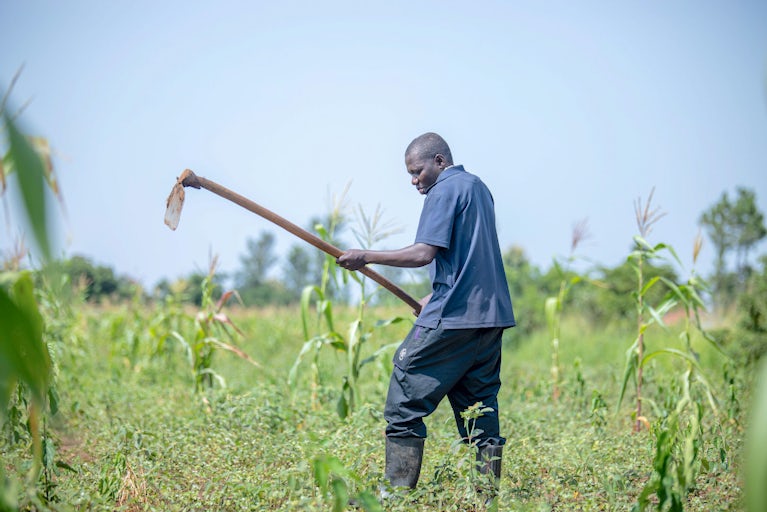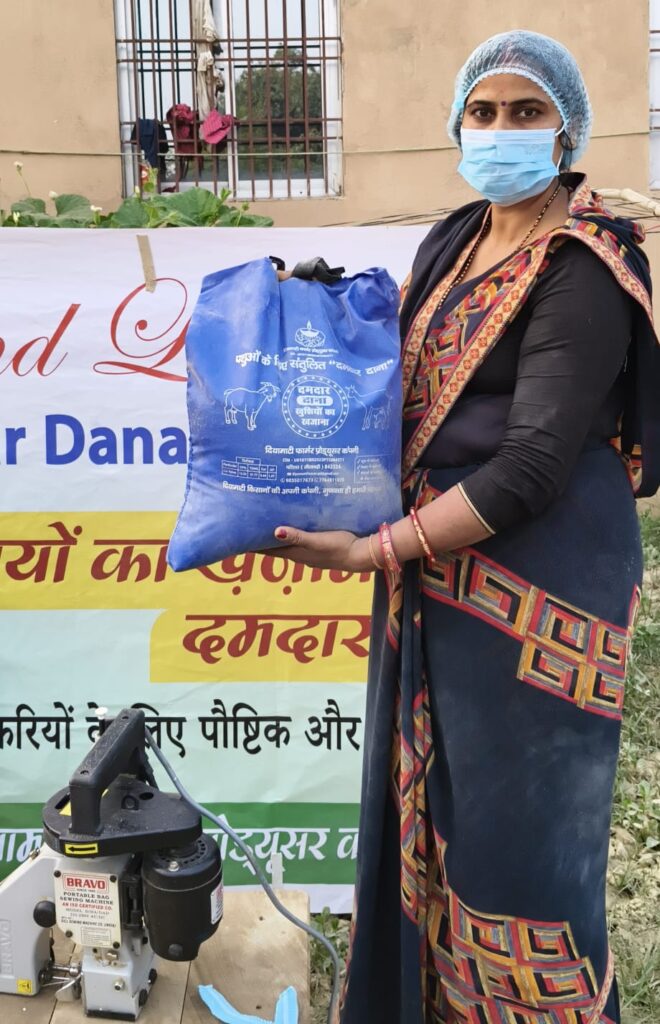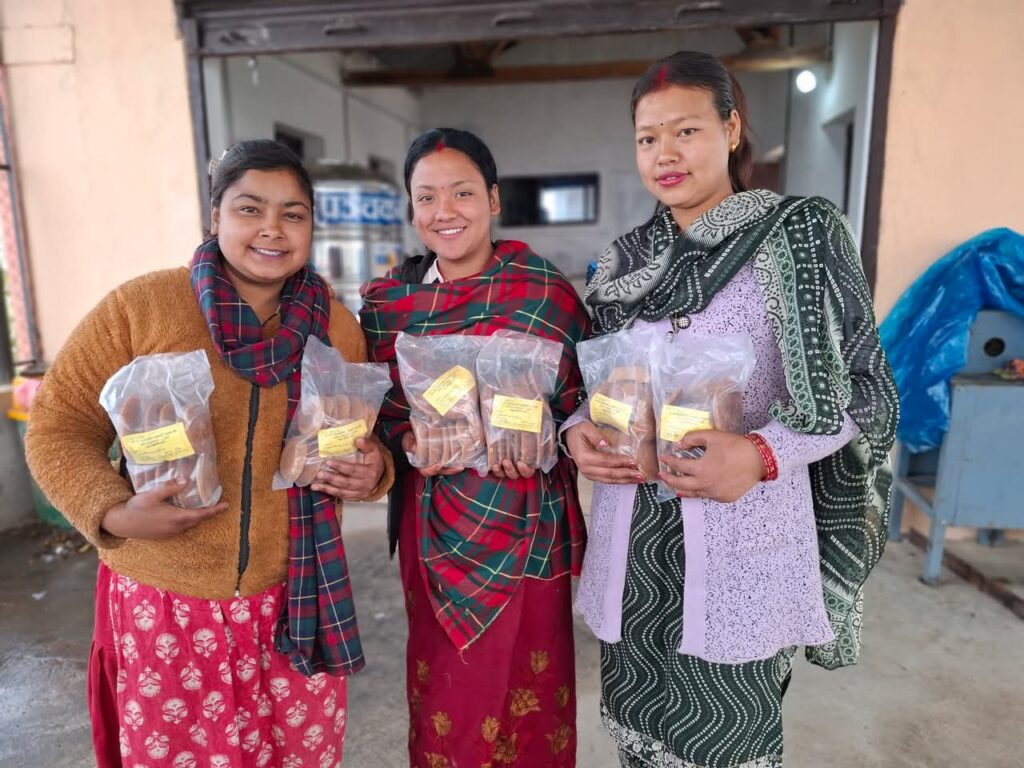
What is a Cooperative?
By Aimée Knight and Gaurisha Malhotra | August 20, 2025
September 11, 2025
Across Asia, rural farmers are reshaping their communities — not alone, but together.
By joining forces in cooperatives, they are building engines for sustainable development. These engines create economic growth, advance social empowerment and strengthen environmental resilience, supporting food system transformation at scale.
The idea is simple: Farmers, especially women farmers, pool their resources and ambition and turn it into collective power. Together, they can negotiate better prices, invest in modern tools, share knowledge and reach larger markets. In this way, partnership becomes a platform for innovation, entrepreneurship and farmer-led development. Cooperatives also open doors to financing — a critical step for women-led enterprises to grow and shape their own futures.
The benefits ripple outward. In cooperatives, women develop leadership and financial skills, and their businesses grow stronger. With rising incomes, families improve nutrition and health and invest in children’s education. Communities become more inclusive and better prepared for future challenges. And by reinvesting locally, the impact spreads across villages, districts and food systems.
On Sept. 24, Heifer International will host a webinar to connect farmers, funders and co-op leaders and explore how innovative finance can help women entrepreneurs and cooperatives scale economic progress across Asia. Register for the online event and continue reading to learn more about how our cooperative partners in Bangladesh, Cambodia, India and Nepal are driving transformative change in the region.

In Jessore Sadar Upazila, Bangladesh, two women-led cooperatives — Nawdagram Nari Agrogoti Samity and Shapla Nari Unnayan Samity — have turned once-isolated farmers into exporters.
Despite having fertile land and a suitable climate, farmers long faced low yields, high costs and reliance on middlemen. Cooperatives changed that.
With Heifer’s support, self-help groups became formal cooperatives, offering training in climate-smart practices, safe vegetable production and post-harvest handling. Equipped with new skills, members began producing export-quality crops and struck deals directly with international buyers such as M/S Maisa Trade International and Al Adib International — eliminating costly intermediaries.
“We are learning how to connect with buyers and market our vegetables,” said Rashida Begum, president of Nawdagram Nari Agrogoti Samity. “We now know how to pack and process them to meet demand.”
So far, the cooperatives have shipped more than 79,000 kilograms of fresh produce, generating over 2.1 million Bangladeshi taka, more than $17,200, in income. Profits are reinvested in cooperative services, expanding members’ access to tools, training and financing.
The cooperatives are also promoting sustainable farming. Women are learning to use organic fertilizers, biopesticides and solar-powered irrigation systems. Soil testing and careful crop planning have improved land productivity, while reduced chemical use has helped lower pollution and farming costs.
Additionally, women are stepping into leadership roles, sitting on local advisory boards, collaborating with government officials and representing their communities in broader forums. “Now people invite me to meetings and ask for my opinion,” shared Srity Rani, chairperson of Shapla Nari Unnayan Samity. “Before, I never imagined leading anything.”
Challenges remain, but Jessore’s farmers are determined to solve them together. They’re partnering with several government departments to facilitate cold storage, aggregation centers, market linkages and soil testing services, and they are pursuing digital tools to strengthen operations.
In Takeo province, Cambodia, the red glow of cherry tomatoes in Neang Mao’s greenhouses are a symbol of transformation. Only two years ago, Mao worked long days as a laborer, struggling to provide for his family. Today, he runs a thriving farm and earns a steady income as a member of the Roneam Samaky Agricultural Cooperative.
Once Mao and his wife became members, the cooperative provided education on vegetable cultivation, pest control and greenhouse farming — training that helped Mao reduce crop loss and raise his income.
“I’ve learned so much from other members in the cooperative,” Mao said. “Compared to my life before, the difference is huge. Now, I’m not just working to survive — I’m running a farm that thrives.”
He also gained skills in financial literacy and savings through a network of farmers who share knowledge and support. “They encourage us, train us and stand by us,” he said. “Members of the cooperative consistently earn more than farmers who work alone.”
A key part of the cooperative’s approach is promoting climate-smart, sustainable farming practices. Greenhouse farming has helped members reduce the use of chemicals that are harmful to humans and the environment.
“Using chemical fertilizers might give you quick results, but it comes with long-term harm,” explained cooperative leader Saom Kimsan. “They make people sick, and in the end, they lose more to medical bills than they gain from the harvest.”
Membership brought security to Mao and his family — and dignity, purpose and possibility. “Before we joined, our income was unstable. Now, our vegetables are chemical-free and in demand,” he says.
The cooperative is producing stronger families — and preparing them for resilient futures.

In Sitamarhi, Bihar, near the India-Nepal border, farming has been an enduring challenge. Annual floods ruin crops, middlemen control prices and women are often excluded from finance and technology. Diyamaati Farmer Producer Company (FPC) is reshaping the future.
Formed in 2023, Diyamaati FPC now has more than 1,600 members, most of them smallholder women farmers. Members pool their resources, market collectively and buy inputs in bulk to secure better prices. “Earlier, we marketed alone, and middlemen gave us low rates. Now the FPC does collective marketing, gives us training and connects us to government schemes that raise our incomes,” said farmer member Sunita Devi.
The cooperative began bulk goat sales, supplied members with high-yield seeds and fertilizers and introduced affordable feed and fodder seeds.
Its standout initiative is Damadar Dana, a goat feed brand now sold nationwide through IndiaMART, one of the country’s largest B2B e-commerce platforms. For women who once had little access to digital tools, online sales mark a remarkable breakthrough — expanding markets, raising incomes and formalizing operations.
Rising profits are reinvested in equipment, training and financing for members. The FPC plans to expand into new value chains and build infrastructure, like training halls, storage facilities and a feed processing unit.
The cooperative also promotes climate-smart practices to protect soil and water and build resilience to floods. Better seeds and crop diversity are improving family nutrition and food security. With healthier goats, stronger crops and more stable incomes, Sitamarhi’s families are better prepared to manage floods and food shortages.
Women and youth are also stepping into leadership roles to plan the FPC’s future — and gaining confidence as they learn to manage digital sales and guide the company’s growth.

In Rurukshetra, Gulmi district, Nepal, a centuries-old tradition is making a comeback. Jaggery production is thriving again, thanks to the Ruru Multipurpose Cooperative.
Local farmers had nearly abandoned the unrefined sweetener made from sugarcane. Outdated methods, unfair prices and heavy labor made production unprofitable. Middlemen paid as little as 7 to 10 Nepalese rupees, roughly 5 to 8 cents, per kilogram.
That changed in 2023, when the cooperative built a modern processing center and introduced training, finance and collective marketing. Today, more than 100 farmers, including 47 women, are earning steady incomes from premium jaggery.
In just five months, the cooperative purchased more than 270 metric tons of sugarcane to process, paying more than 3 million rupees, over $21,300, to local farmers. Members now earn up to 200,000 rupees, roughly $1,400, annually.
“If there was no cooperative, we’d still be fragmented, selling at unfair prices,” said board member Arjun Prasad Gyawali. “Now, the cooperative is like a balm to our wounds.”
The cooperative is inclusive by design, with women and youth holding key leadership roles. Members are learning sustainable farming practices to improve germination and soil health, and electric-powered processing machines ensure safer, cleaner production. The cooperative also has branded packaging and wholesale buyers. It has unlocked 3.5 million rupees, nearly $25,000, from local authorities — and plans to attract more investment for tools, fertilizers and pest control.
“We’re more skilled, confident and united than ever,” said member Ganga Pun.
For Ganga, the change is also deeply personal: “Now I don’t have to ask anyone for money to buy food or medicine.”
Jaggery has become more than a sweetener — it’s a source of dignity, income, and pride. And it’s proof that finance and cooperation can turn fragile traditions into thriving futures.
Across Asia, one message is clear: When women farmers join forces through cooperatives, they gain access to opportunities, expand markets and transform their communities. These are not isolated stories — they show what happens when supportive partners and financial systems invest in women-led agribusinesses and co-ops.
Join the conversation Sept. 24 Indian Standard Time with our virtual fireside chat, Seeding Strength to Unlock Finance for Women-Led Rural Enterprises and Cooperatives, cohosted by Heifer International Asia and the International Cooperative Alliance Asia and Pacific. Bringing together voices from philanthropy, co-op leadership and global funding agencies, the dialogue will explore innovative ways to expand access to finance for rural women entrepreneurs and farmer cooperatives and accelerate sustainable, inclusive development.
This initiative is part of Seeding Strength: Empowering Farmer Cooperatives, a flagship campaign of Heifer International in Asia to commemorate the UN International Year of Cooperatives 2025.
Cart is empty
Success!
Please be patient while we send you to a confirmation page.
We are unable to process your request. Please try again, or view common solutions on our help page. You can also contact our Donor Services team at 855.9HUNGER (855.948.6437).
Covering the transaction fee helps offset processing and administrative fees that we incur through taking payments online. Covering the transaction fee for each payment helps offset processing and administrative fees that we incur through taking payments online. Covering the transaction fee for each payment helps offset processing and administrative fees that we incur through taking payments online.